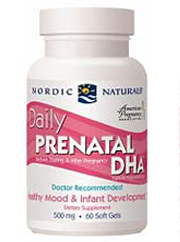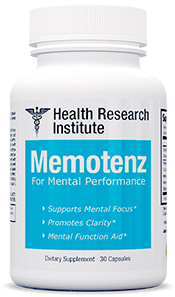Prenatal DHA Review: Don’t Buy Before You Read This!
User Rating:
41%
 +
-
+
-
What is it?
Prenatal DHA is a daily health and wellness supplement that is designed to help improve the health of pregnant women and their babies, as well as to provide benefits for the mental performance of users of all ages and genders. Its manufacturers claim that it can have benefits to fetal development, and may positively impact birth size and weight.
Prenatal DHA helps to improve the quality of the mother’s breast milk, and replaces some of the essential nutrients that women lose while nursing. It is also thought to be helpful for increasing the levels of some key chemicals and neurotransmitters that are used for basic cerebral health and functionality.
The top nootropic booster that our team of experts has reviewed is called Memotenz. It is a memory and cognition booster that has shown to help students, working professionals, and creative artists take their mental games to the next level. Click here to see all of the ingredients that go in to making Memotenz so effective.
Prenatal DHA Ingredients and Side Effects
Vitamin D3: A chemical called cholecalciferol that is one of the vital amines in the human body. D3 has multiple biological functions, including the regulation of the minerals calcium and phosphorous, and the formation of bone tissue.
The most efficient source for vitamin D3 is simply exposure to sunlight. The fat cells of the body absorb and store D3, then release it slowly as needed. Many people that live in far northern climates or other areas that do not get sun will often need to seek outside supplementation, as do older people that have trouble storing and processing the vitamins.
There are some supplements manufacturers that claim that vitamin D3 has mental performance benefits, however these claims have been thoroughly disproven. D3 may have benefits for stabilizing mood and outlook, however there is no data that shows it can have benefits for memory function, attention span, or any other measurements of a nootropic product.
It is considered healthy for pregnant women, and is thought to be beneficial for proper fetal development. There are no side effects related to vitamin D3 when it is taken in reasonable quantities, however it is possible to overdose on D3 is consumed irresponsibly.
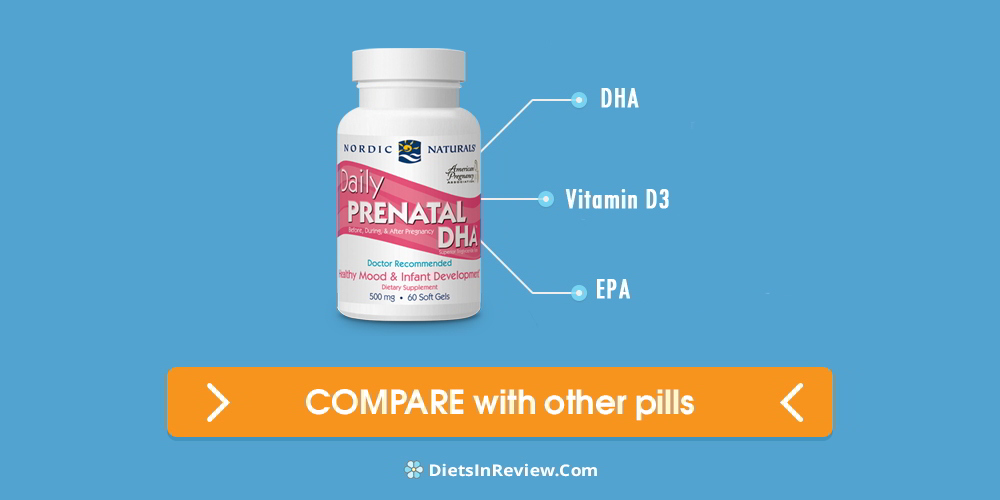
DHA: A form of Omega-3 fatty acid that is used by the body for a wide variety of purposes. DHA is a key component in the physical structure of the brain, skin, and eyes. It is synthesized naturally in the body, however it can also be consumed orally in milk (particularly human breast milk), fish oil, and some algae byproducts.
DHA is needed for proper mental function, as it is a key neurotransmitter and neuroprotectant. It is responsible for the transportation of choline, glycine, taurine, potassium, and rhodopsin in the brain, and low DHA levels are responsible for certain types of cognitive decline.
As people age, their brains manufacture less DHA naturally. This can lead to a decline in mental performance, and may even be partially responsible for the onset of serious conditions such as dementia and Alzheimer’s disease.
It is unlikely that taking DHA or omega 3-fatty acids will lead to a significant increase in mental performance. It is necessary for proper functionality and establishing users’ baseline performance levels, however once that baseline is established there is not much of a boosting effect past that point.
The people that will see the most results from beginning a DHA supplementation regime are elderly individuals and people that have pronounced DHA deficiencies. DHA is safe for pregnant women and is thought to be beneficial for encouraging proper fetal development, as well as for improving the quality of breast milk.
DHA is safe for most humans. It is not associated with any serious side effects, however it should also not be over-consumed or it can lead to bloating, nausea, and fishy breath and body odor.
EPA: Another omega-3 fatty acid that is similar, though not identical, to DHA. EPA is also used for neurological function and heart health, and it may be particularly beneficial to cholesterol processing.
DHA can raise the level of low-density lipoproteins in the body, which are considered the “bad” form of cholesterol. It is not as directly tied to brain function as DHA is, however EPA is still important for cell signaling and neurological communication.
DHA is also unlikely to have any sort of boosting effect, and is not thought to be a nootropic aid. It is considered healthy for all users, and there is little chance of experiencing any form of negative reaction when consumed in reasonable quantities.
Click here to see an up-to-date top ten list ranking the best nootropics on the market today.
Prenatal DHA Quality of Ingredients
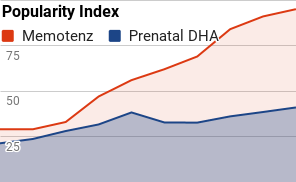 Most people looking for a nootropic supplement that boosts mental performance will probably not notice a significant benefit from taking Prenatal DHA. For women who are currently pregnant or have just given birth, however, Prenatal DHAB may be very useful.
Most people looking for a nootropic supplement that boosts mental performance will probably not notice a significant benefit from taking Prenatal DHA. For women who are currently pregnant or have just given birth, however, Prenatal DHAB may be very useful.
When taken during pregnancy, the omega-3 fatty acids and vitamin D3 can be beneficial to the health and wellbeing of both the mother and the child. DHA in particular is helpful for improving the quality of the mother’s breast milk, helping it be more nutrient rich while not depleting the mother’s own nutrient stores.
Most other users will not see significant benefits from taking Prenatal DHA, however it is generally healthy for all people, regardless of gender or pregnancy. It will have a degree of usefulness for helping with some general biological functions, however users should not expect to feel or notice these differences themselves.
It is highly unlikely that any given user will see improvement in memory, attention span, thinking speed, or any other metric that is used to judge nootropic performance. The only individuals that my see significant benefits are those individuals without natural access to vitamin D3 or omega-3 fatty acids.
Follow this link to learn which nootropic supplements have performed the best in our team of experts’ analyses.
The Price and Quality of Prenatal DHA
Prenatal DHA is commonly available in both physical storefronts and through internet vitamins and supplements dealers. Its price can vary widely depending on where it is purchased, but here are the last quoted pieces for Prenatal DHA, checked the day before this article’s publication:
- 1, 90-count bottle of Prenatal DHA softgels: $28.95
- 1, 180-count bottle of Prenatal DHA softgels: $49.95
These prices tend to be lower than most effective nootropic supplements, however they are also unlikely to be effective in their own. This may necessitate secondary supplementation for many users, which would make Prenatal DHA much less cost effective.
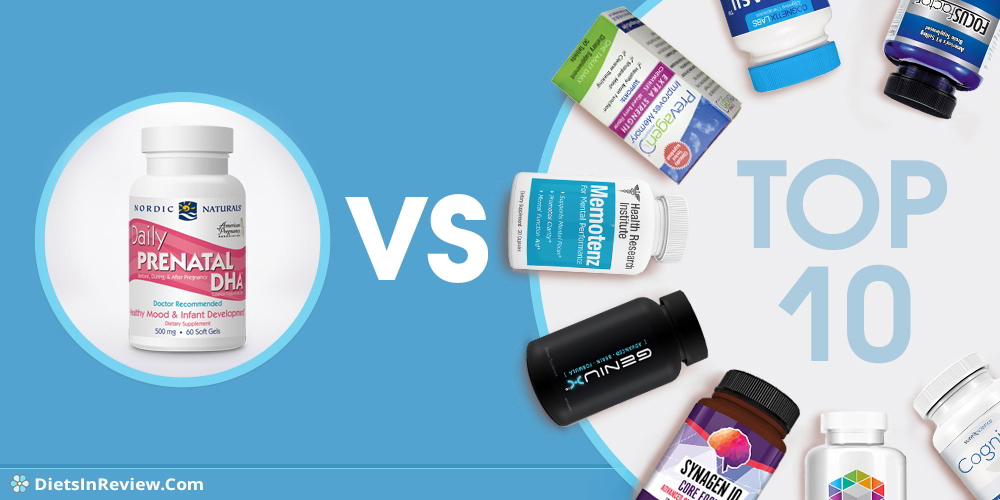
To learn how to maximize your learning potential and mental performance levels, click on this link.
Business of Prenatal DHA
Prenatal DHA is produced by a company called Nordic Naturals that is originally based in Norway and specializes in fish-based products that are high in omega-3 fatty acids. They can be contacted through the following methods:
Phone Number: (800) 662-2544
Address: 111 Jennings Drive
Watsonville, CA 95076
Email: [email protected]
Users should be aware that Nordic Naturals has received multiple different notices from the FDA. They have been warned about making false and unethical claims about the benefits of their products.
For more data that can help you decide on the right nootropic for your particular needs and goals, just follow this link.
Customer Opinions of Prenatal DHA
There are hundreds of one- and two-star reviews for Prenatal DHA that can be found on Amazon, GNC, Vitacoast, and other supplements distributors’ websites. Here are two reviews from past customers, pulled from those responses:
“This stuff is straight nasty. Smells like rancid fish, makes my stomach go crazy, and didn’t even seem to do anything. I quit taking it all together when my girlfriend called the fishy BO it gave me “my new cologne.”
“I tried taking this stuff for a while, but it was too gross. I started to get nauseous every time I took it, and even started gagging just trying to swallow it. I had diarrhea all the time and never noticed any kind of benefits.”
There is also a surprising amount of complaints about the packaging and freshness of Prenatal DHA. Many users said that they received pills that were damaged, stuck together, or seemed as though they were spoiled.
Click on this link to gain access to our full library of nootropic supplements reviews for all the top brands on the market today.
Conclusion – Does Prenatal DHA Work?
The only people who should consider taking Prenatal DHA are pregnant women that are looking to improve the health and wellness of their children and people that have diagnosed omega-3 or vitamin D3 deficiencies. Anyone taking Prenatal DHA for any other purpose will probably be disappointed by their results.
As healthy as DHA, EPA, and D3 are for the body and brain, they are not considered nootropic boosters. There is no evidence that healthy adults will see any noticeable improvement in their cognitive performance, memory functions or, any other significant nootropic category.
The most effective nootropic booster on the market has been shown to be Memotenz. It has the best rates of improvement for average adult users across multiple mental performance metrics.
Memotenz boosts information storage and recall rates, thinking speed and accuracy, and length of attention span. Click on this link to find out how Memotenz can help improve your performance in work, school, or creative projects.
Featured Diets


